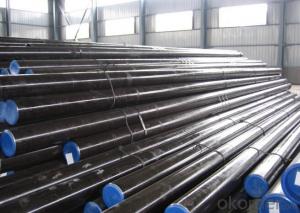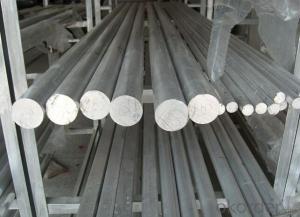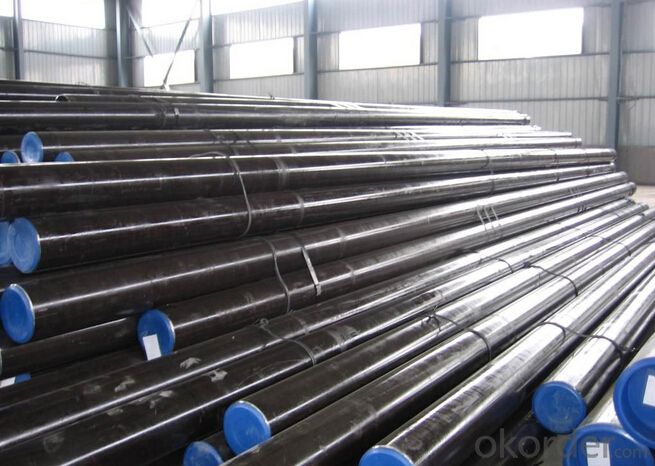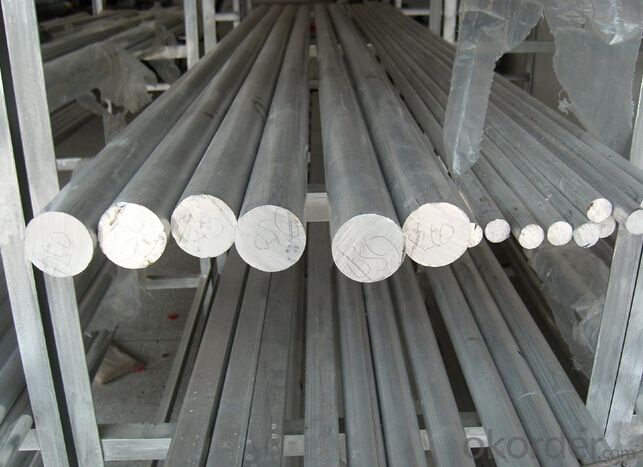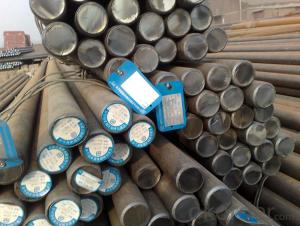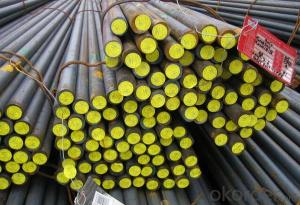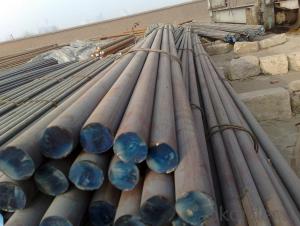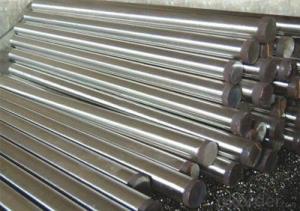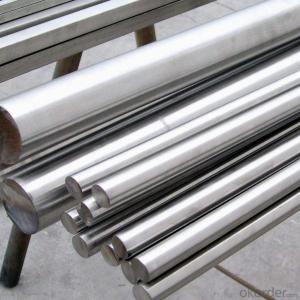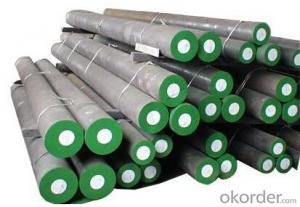Round Bar Alloy Steel SAE5160 Spring Steel Special Steel
- Loading Port:
- China main port
- Payment Terms:
- TT OR LC
- Min Order Qty:
- 30 m.t.
- Supply Capability:
- 10000 m.t./month
OKorder Service Pledge
OKorder Financial Service
You Might Also Like
Specification
SAE5160 Spring Steel
1. Material: 65Mn, 60Si2Mn, 50CrVA, SUP-9 etc.
2. Type: Smooth Plain, Double grooved.
3. Specifications: A variety of sizes from 5*45 to 30*150mm. We can produce according to customers' requirements, can customize for you.
4.Features: high strength & toughness; good hardenability & plasticity; excellent decarburization
; strong resistance & good elasticity; perfect machinability
5. Usage: Automobile laminated leaf spring, agricultural machinery & implements(rotary coulter), tools and machines etc.
6. Packing: Standard seaworthy packing or as customer required
7. Application: High strength, high toughness, large sectionand and important modified parts
Product show
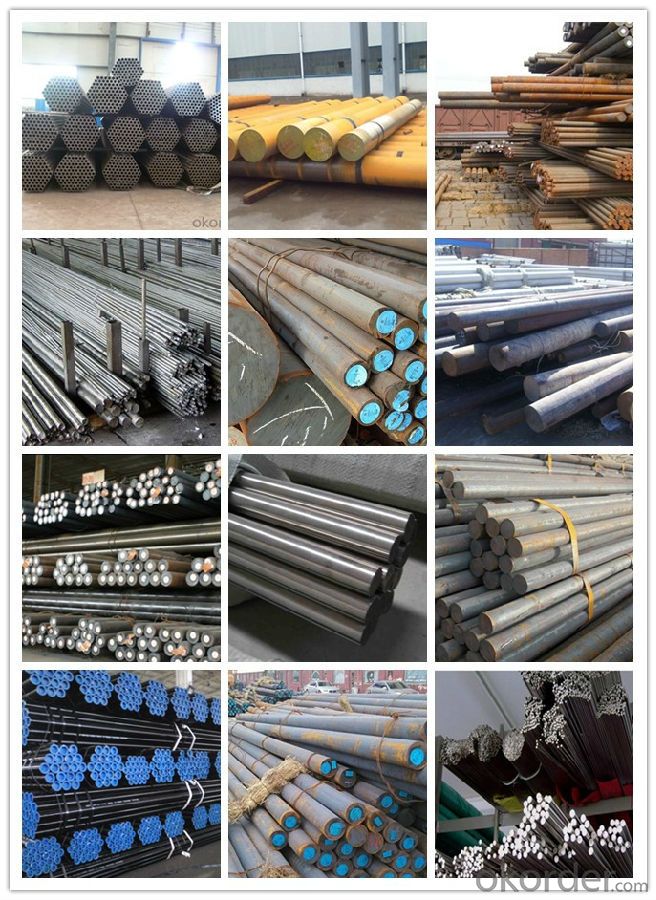
Workshop show
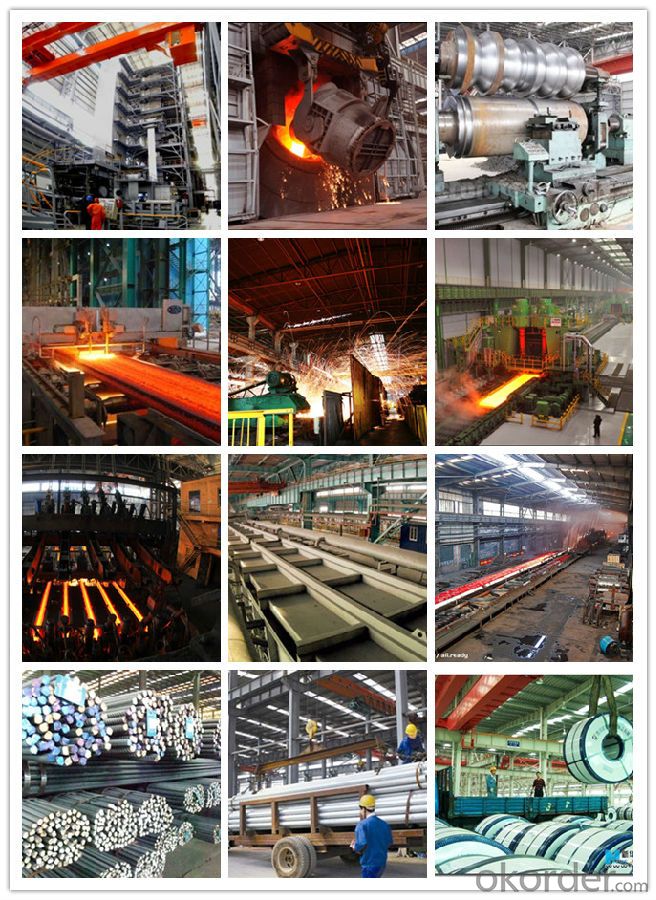
Shipping
1. FedEx/DHL/UPS/TNT for samples, Door-to-Door;
2. By Air or by Sea for batch goods, for FCL; Airport/ Port receiving;
3. Customers specifying freight forwarders or negotiable shipping methods!
Delivery Time: 3-7 days for samples; 5-25 days for batch goods.
Payment Terms
1.Payment: T/T, L/C, Western Union, MoneyGram,PayPal; 30% deposits; 70% balance before delivery.
2.MOQ: 1pcs
3.Warranty : 3 years
4.Package Informations: 1) EXPORT, In 20 feet (GW 25 ton) or 40 feet Container (GW 25 ton)
2)as customer's requirement
Main Product
Plastic Mould Steel
DIN 1.2311,1.2738,1.2083,1.2316 etc.
AISI P20,P20+Ni,420 etc.
JIS SUS420J2
Hot Work Steel
DIN 1.2344,1.2343,1.2367,1.2365,1.2581,1.2713 etc.
AISI H13,H11,H10,H21, etc.
JIS SKD61,SKD6,SKD5,SKT4 etc.
Cold Work Steel
DIN 1.2739, 1.2601, 1.2080, 1.2436, 1.2631, 1.263, 1.2510, 1.2327 etc.
AISI D2, D5, D3, D6, A8, A2, O1 etc.
JIS SKD10, SKD11, SKD1, SKS3 etc.
High Speed Steel
DIN 1.3343, 1.3243, 1.3247, 1.3355 etc.
AISI M2, M35, M42, T1 etc.
JIS SKH51, SKH35, SKH59, SKH2 etc.
Alloy Structural Steel
DIN 1.7035,1.6511,1.7220,1.7225 etc.
AISI 5140, 4340, 4135, 4140 etc.
JIS SCr440,SNCM439,SCM435,SCM440 etc.
Stainless & Carbon Steel or Others
DIN 1.4125,1.1191 etc
AISI 440C,1045, 1020 etc.
JIS SUS440C,S45C etc
Why choose us?
(1) The leading exporter in China special steel industry.
(2) Large stocks for various sizes, fast delivery date.
(3) Good business relationship with China famous factories.
(4) More than 7 years steel exporting experience.
(5) Good after-sales service guarantee.
- Q: How is high-temperature stainless steel used in the production of gas turbines?
- High-temperature stainless steel is used in the production of gas turbines due to its excellent resistance to corrosion and oxidation at elevated temperatures. It is primarily used to manufacture critical components like turbine blades, vanes, and combustion chambers, which are exposed to extreme heat and pressure inside the turbine. The high-temperature stainless steel ensures durability, performance, and longevity of gas turbines, enabling them to operate efficiently in demanding conditions.
- Q: How does special steel perform in terms of chemical resistance?
- Special steel generally performs well in terms of chemical resistance. It is often designed to have high resistance to corrosion, oxidation, and chemical reactions with various substances. This attribute makes it suitable for applications in industries like oil and gas, chemical processing, and marine environments. However, the specific chemical resistance of special steel can vary depending on its composition and treatment, so it is important to consider the specific requirements and consult with experts when selecting the appropriate type of special steel for a particular application.
- Q: What is the impact of manganese in special steel alloys?
- The presence of manganese in special steel alloys is crucial as it greatly affects their properties and performance. These alloys, also referred to as high-strength or low-alloy steels, are specifically designed to possess improved mechanical properties, including increased strength, durability, and resistance to wear and corrosion. In order to achieve these desired characteristics, manganese, along with other alloying elements such as nickel, chromium, and molybdenum, is incorporated into the steel. One of the major impacts of manganese in special steel alloys lies in its capacity to enhance the hardenability of the steel. During the solidification and cooling process, manganese promotes the formation of fine-grained structures, which ultimately leads to improved strength and toughness. This particular property is of utmost importance in applications where the steel needs to endure heavy loads, shocks, or extreme temperatures. Moreover, manganese aids in reducing the brittleness of the steel and improving its weldability. By forming a solid solution with iron, it prevents the formation of detrimental iron sulfides, which can cause brittleness and hinder the steel's weldability. Consequently, manganese becomes an essential element in steels utilized in various industries such as fabrication, construction, and automotive, where welding is a common practice. In addition, manganese contributes to the steel's resistance against corrosion and oxidation. It creates a protective oxide layer on the surface of the steel, effectively preventing the intrusion of oxygen and moisture. This particular property proves to be highly advantageous in industries where the steel is exposed to harsh environments or corrosive substances, such as marine applications, chemical processing plants, or oil and gas refineries. Furthermore, manganese enhances the hardenability and wear resistance of the steel, making it suitable for the production of tools, machinery parts, and cutting edges. It heightens the steel's ability to undergo heat treatment, thus enabling the attainment of desired hardness and strength through processes like quenching and tempering. In conclusion, the inclusion of manganese in special steel alloys significantly enhances their hardenability, weldability, toughness, corrosion resistance, and wear resistance. Its addition enables the production of high-strength and durable materials capable of withstanding demanding applications and environments.
- Q: How is corrosion-resistant tool steel used in the production of molds and dies?
- Corrosion-resistant tool steel is used in the production of molds and dies to ensure the longevity and durability of these tools. Since molds and dies are often exposed to harsh environments and corrosive elements, using corrosion-resistant tool steel helps to prevent rust and corrosion, which can lead to premature wear and damage. This type of tool steel also provides excellent strength, hardness, and wear resistance, allowing molds and dies to withstand high-pressure and high-temperature conditions without compromising their performance. Overall, the use of corrosion-resistant tool steel in the production of molds and dies ensures the production of high-quality and long-lasting tools that can withstand the demands of various manufacturing processes.
- Q: What are the different types of tool steels used in special steel?
- Some of the different types of tool steels used in special steel include high-speed steels, cold work steels, hot work steels, and plastic mold steels. Each type of tool steel is designed to have specific properties that make it suitable for different applications, such as cutting, shaping, or molding materials.
- Q: What are the main applications of special steel in the electronics packaging?
- Special steel is widely used in electronics packaging due to its unique properties. The main applications of special steel in electronics packaging include providing high strength and durability to protect delicate electronic components, offering excellent corrosion resistance to safeguard against environmental factors, and ensuring thermal conductivity for efficient heat dissipation. Additionally, special steel is utilized in creating precise and intricate shapes for components, ensuring electromagnetic compatibility, and providing electrical conductivity for improved performance and reliability in electronic devices.
- Q: How does special steel contribute to the automotive aftermarket?
- The automotive aftermarket greatly benefits from the inclusion of special steel, as it aids in the advancement and enhancement of various automotive components. This top-notch steel is engineered specifically to possess remarkable strength, endurance, and resistance against wear and tear. One of the primary manners in which special steel contributes to the automotive aftermarket is through the production of performance parts. These parts are crafted to enhance the efficiency and performance of vehicles, catering to the desires and preferences of car enthusiasts. For instance, special steel is utilized in the production of exhaust systems, turbochargers, and intake manifolds, enabling an increase in horsepower and torque, as well as improved fuel efficiency. Furthermore, the production of suspension components, such as coil springs and sway bars, benefits from the usage of special steel. These components provide superior handling and stability, elevating the driving experience and ensuring the safety of both the vehicle and its occupants. Moreover, special steel is essential in the manufacturing of braking systems, encompassing rotors and brake calipers. These components are essential in achieving effective braking and maintaining control of the vehicle. By incorporating special steel, aftermarket brake systems can offer enhanced stopping power, reduced fade, and increased resistance to high temperatures. Additionally, special steel finds application in the production of engine components, including crankshafts, connecting rods, and valve springs. These components endure extreme forces and temperatures, and the exceptional strength and heat resistance of special steel enable them to withstand such conditions, resulting in improved engine performance and longevity. In conclusion, special steel significantly contributes to the automotive aftermarket by aiding in the development of high-performance parts, suspension components, braking systems, and engine components. Its outstanding strength, endurance, and resistance to wear and tear guarantee improved vehicle performance, efficiency, and overall driving experience.
- Q: Can special steel be used in the production of surgical implants?
- Yes, special steel can be used in the production of surgical implants. Special steel, such as stainless steel, is often preferred for surgical implants due to its high strength, corrosion resistance, and biocompatibility. It is commonly used for various types of implants, including orthopedic, dental, and cardiovascular implants.
- Q: How does special steel perform in cutting applications?
- Special steel performs exceptionally well in cutting applications. It has high hardness, excellent wear resistance, and superior toughness, allowing it to effectively cut through various materials with ease. Its exceptional performance ensures precise and clean cuts, making it a preferred choice in industries such as manufacturing, construction, and automotive. Additionally, special steel's ability to retain its cutting edge for prolonged periods minimizes the need for frequent sharpening or replacement, resulting in increased productivity and cost-effectiveness.
- Q: Can special steel be used in the printing industry?
- Yes, special steel can be used in the printing industry. Special steel, such as stainless steel or tool steel, can be utilized in the manufacturing of printing equipment and machinery parts. These types of steel provide excellent strength, durability, and resistance to wear and corrosion, making them suitable for various components used in printing presses, rollers, blades, and other machinery.
Send your message to us
Round Bar Alloy Steel SAE5160 Spring Steel Special Steel
- Loading Port:
- China main port
- Payment Terms:
- TT OR LC
- Min Order Qty:
- 30 m.t.
- Supply Capability:
- 10000 m.t./month
OKorder Service Pledge
OKorder Financial Service
Similar products
Hot products
Hot Searches
Related keywords
